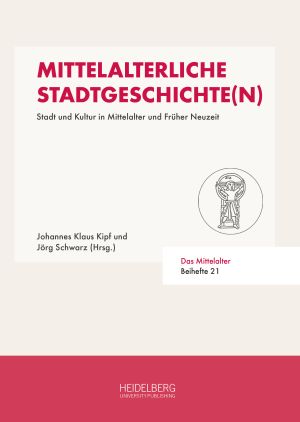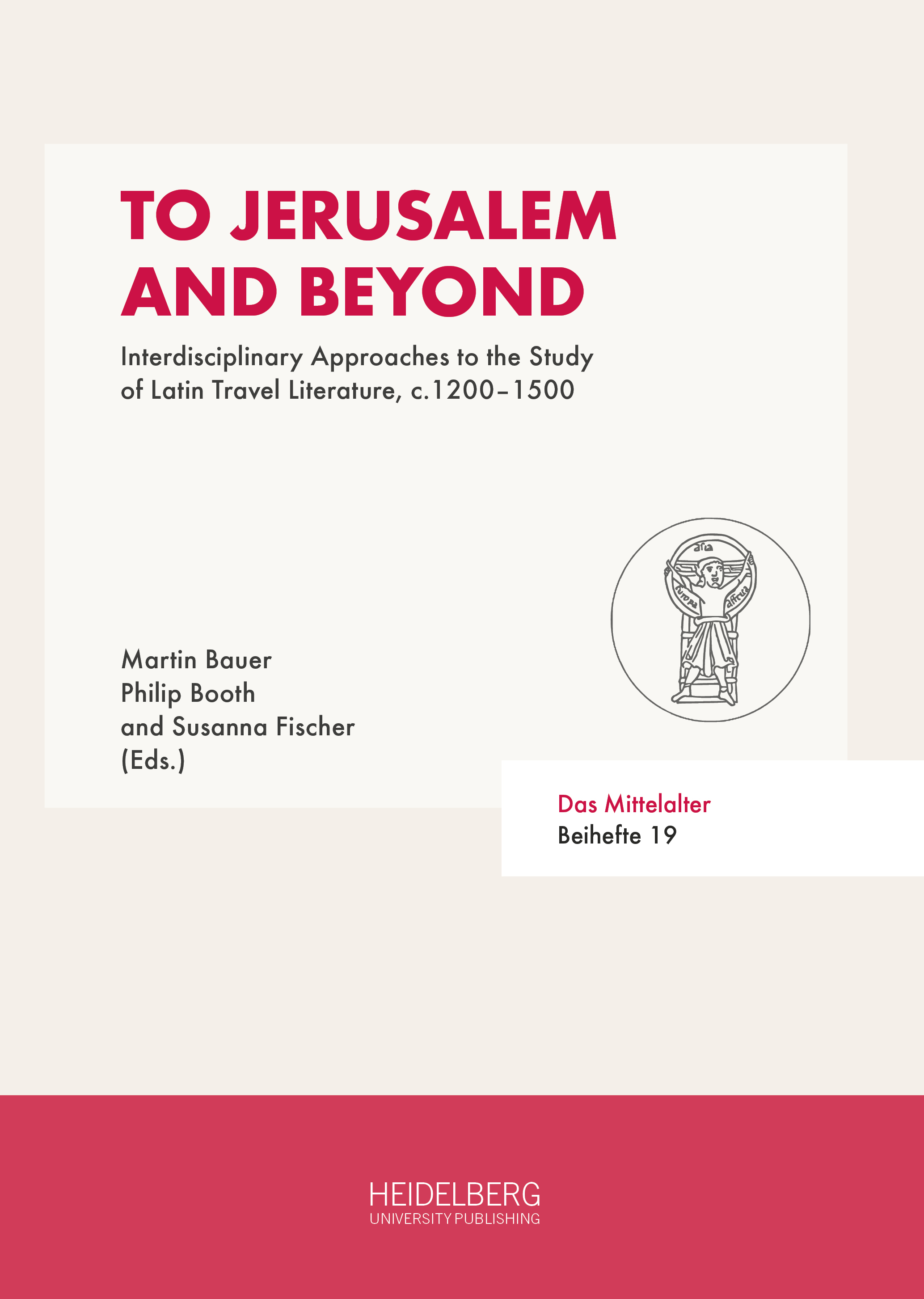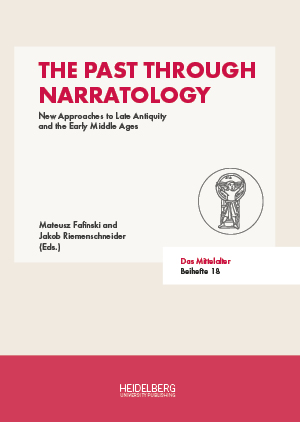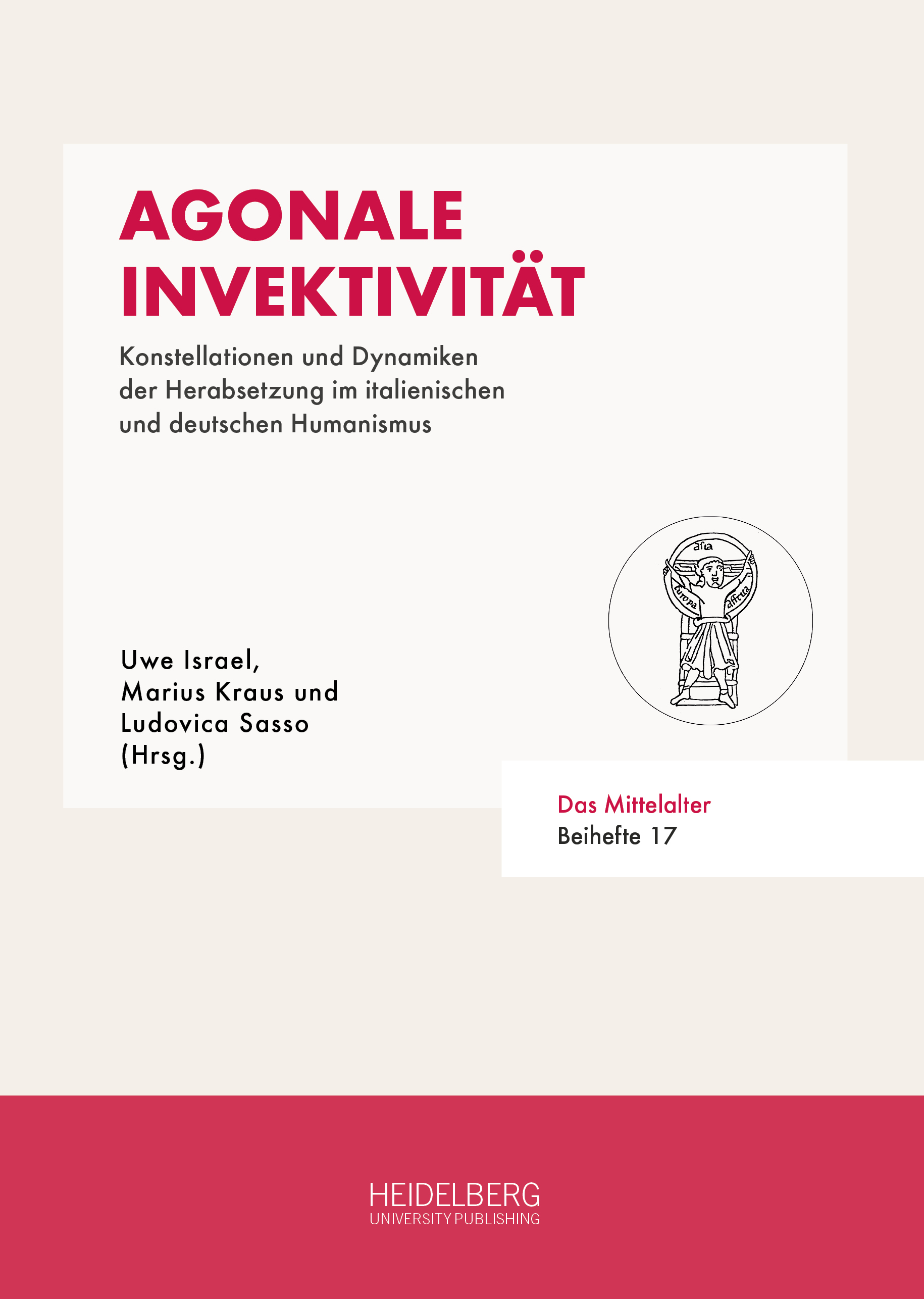Das Mittelalter. Perspektiven mediävistischer Forschung. Beihefte
The open-access series offers a forum for double-blind peer-reviewed, thematically focussed anthologies and selected conference proceedings, as well as monographs on topics from the field of medieval studies. As such it complements the journal Das Mittelalter. Perspektiven mediävistischer Forschung, published by the Mediävistikverband (Association of Medieval Studies) and aims at covering all the different disciplines represented by the association. The scope thus ranges from the study of history and theology, Byzantine and Latin studies, to mod-ern language philologies. Each volume aims at overcoming the traditional borders between the different disciplines and national traditions. Selection criteria for publication in the series are scholarly relevance, methodological solidity, and an innovative approach. In order to increase international impact and visibility, texts can be either in German or English.
Series Editors
- Ingrid Baumgärtner, Technische Universität Darmstadt
- Stephan Conermann, Universität Bonn
- Thomas Honegger, Universität Jena
Contact
E-Mail: ibaum@uni-kassel.de
Advisory Board
Advisory Board of the Mediävistikverband
Series Style Guide and Word-Template
Das Mittelalter. Beihefte. Notes for authors and volume editors
Coming Soon
Fake News im Mittelalter?
The “post-truth era” and a new kind of threat from uncontrollable fake news have been central components in diagnoses of the present for several years. However, the question of how historically new such phenomena actually are is controversial. This volume, which brings together contributions from the fields of history and literary studies, aims to provide a fundamental clarification of whether and in what respect we can speak of fake news in the Middle Ages. A theoretical introduction and case studies are used to examine the extent to which structural analogies can be identified for the constellation of phenomena that are currently referred to as fake news in the European Middle Ages and where the heuristic limits of such anachronism lie.
Normen und Ideale
Every culture has rules and systems of norms that structure and organize social coexistence. These norms are not only enshrined in laws or religious commandments but permeate all forms of cultural expression. They can be found in religious and legal texts as well as in the visual arts, literature, philosophy, and political theory. In all areas of life and art, authors are guided by values. Their texts and cultural artifacts thus become testimonies to social negotiation processes. The contributions to this volume approach these negotiation processes from different perspectives.
Published so far
Exultet in Material und Raum: Süditalienische Exultet-Rollen als raumkonstituierende Medien
Exultet iam angelica turba coelorum! – Rejoice, choirs of angels! – these words mark the beginning of the Easter Proclamation; its opening word, Exultet, gave its name to the manuscripts in which the proclamation was recorded as a central part of the Easter liturgy. The Exultet rolls, which originated between the 10th and 14th centuries, mainly in Apulia and Campania, combine writing, images and musical notation in a unique way.
This book is the first to examine the material and media characteristics of the rolls from an interdisciplinary perspective, focusing not only on the objects themselves, but also on their use and perception in the Beneventan liturgy. It shows the extent to which the rolls contributed visually, aurally and olfactorily to the constitution of liturgical and social spaces.
Stadtgeschichte(n): Stadt und Kultur in Mittelalter und Früher Neuzeit
The title 'Medieval urban history/stories' evokes the dual meaning of the word as an event and as a narrative. On the one hand, it is about the event itself, and on the other, about what is reported and narrated about this event, i.e. urban historiography and the literature produced in the city. This anthology brings together contributions that examine the representation of the city in literature, art and historiography as well as a specifically urban culture in the Middle Ages and early modern period. To this end, sources are selected from the extensive corpus in which topography and institutions, buildings and inhabitants are explicitly addressed and become the subject of narration, praise and historical representation. The aim is to combine older approaches to social history with more recent ones, such as imagological approaches.
Welt-Wissen und kartografische Repräsentation: Arabisch-islamische und lateinisch-christliche Verflechtungen
This interdisciplinary study explores the controversially discussed question of whether and how geographical and cultural knowledge from the Arab-Islamic world was utilised by European mapmakers. The contextual analysis of cartographic representations – from diagrammatic maps of the three known continents and the seven climes to detailed world maps and Portolan charts – as well as accompanying source texts from the 10th to the beginning of the 15th century demonstrates the complex dynamics of the transmission of knowledge, which was neither linear nor continuous. Following the spatial turn, maps are understood as hybrid, socio-cultural cultural sources that conceptualise space and transmit cultural world views, which were used to pursue a variety of interests.
To Jerusalem and Beyond: Interdisciplinary Approaches to the Study of Latin Travel Literature, c.1200-1500
With the expansion of trading routes, pilgrimage, and missionary endeavours in the 13th century, Latin travel literature emerged as a distinctive genre like never before. To highlight the importance of this genre, this volume outlines and explores current and future research trajectories with a focus on Latin travel literature from c. 1200–1500. Combining digital, codicological, literary, philological, and anthropological approaches the volume analyses the ways in which these texts were produced, distributed, received, read, and how they can be interpreted. It argues for the importance of re-evaluating these texts and revisiting their contents in light of new methodological and theoretical approaches.
The Past Through Narratology: New Approaches to Late Antiquity and the Early Middle Ages
„The Past through Narratology“ proposes a fresh approach to various types of texts from Late Antiquity and the Early Middle Ages. Starting from a broad definition of what a text can be – ranging from hagiographic narratives and maps to archaeological remains – this book proposes narrativity and narratology as frameworks for exploring sources and exchanging opinions. The various contributions in this volume investigate how late antique and early medieval authors and movements used narrative as a vehicle for their ideas and how they operated in literarised spaces. At the same time, this book also examines how we as researchers construct narratives about our periods of study.
Agonale Invektivität: Konstellationen und Dynamiken der Herabsetzung im italienischen und deutschen Humanismus
What does humanism mean, who is a humanist? Contemporaries clarified this not least through diatribes. Intellectuals who, since the middle of the fourteenth century, have regarded rhetoric as the most noble method of promoting virtue, searching for truth and knowledge of God, saw mutual personal degradation as the means of asserting their positions.













